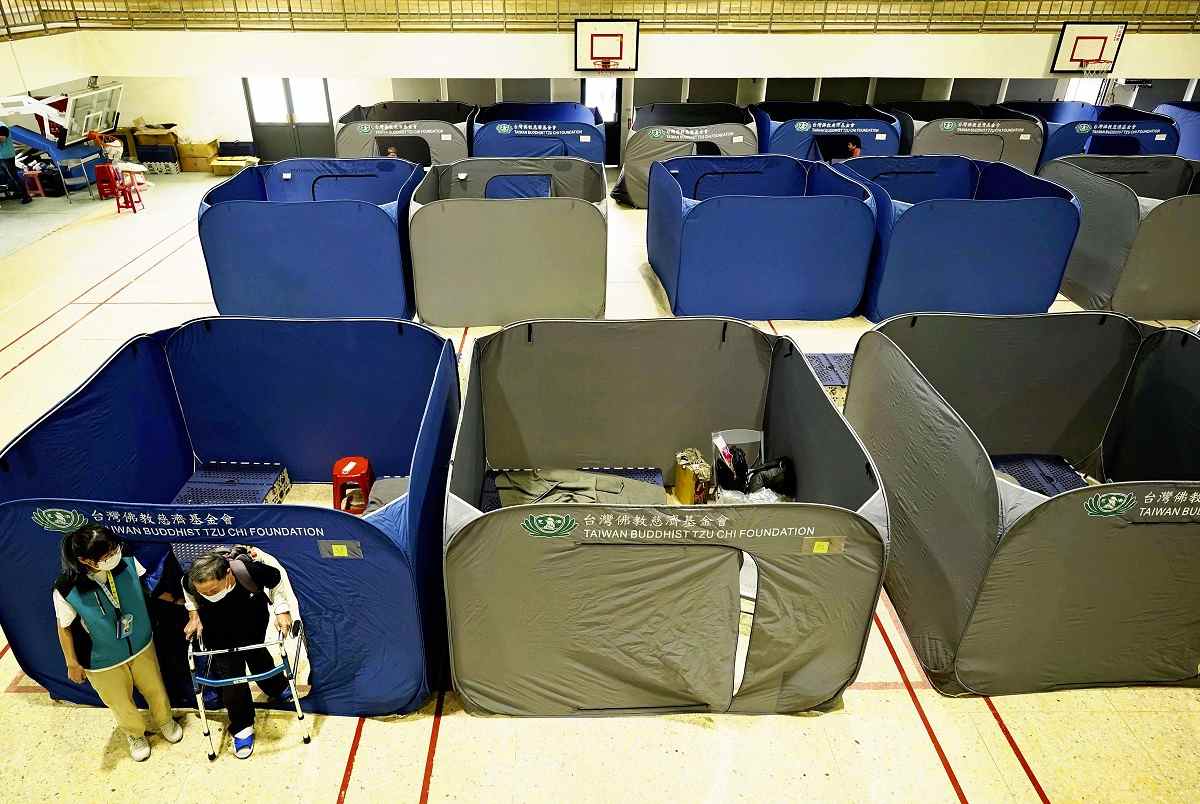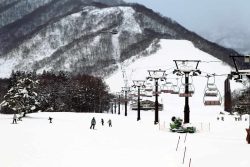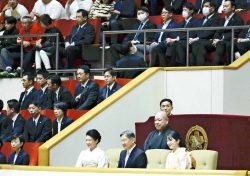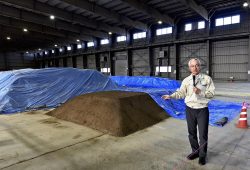Taiwan’s Public-Private Cooperation Allowed City to Act Quickly After Quake; Taiwan Modeled Disaster Response After Japan’s System

Evacuation shelter in Taiwan
7:00 JST, April 14, 2024
HUALIEN, Taiwan — After a powerful earthquake occurred off Hualien, eastern Taiwan, on April 3, people in the city responded quickly to the disaster and set up an emergency evacuation shelter within three hours. This was made possible due to regular collaboration and cooperation between public and private organizations.
By the next morning, about 130 evacuees were staying in an emergency shelter in Hualien. They appeared calm in the shelter, which had partitions set up to allow the evacuees some privacy. Massages were offered, and children played games with volunteers.
“I can’t go home because I’m worried about possible aftershocks,” said one evacuee, a 69-year-old homemaker. “But it’s a relief that this shelter was put together so quickly. I can stay here and not feel anxious at all.”
The Hualien municipal government promptly responded to the disaster.
Ten minutes after the quake, the head of the city’s social and labor department went to an elementary school near city hall and began preparations to open an emergency shelter.
An hour later, a group on the Line messaging app was formed to share information and connect the city with private organizations it usually works with.
Soon after, people from relevant organizations arrived to install partitions and quickly put together a shelter. Necessary equipment and services were to be mainly provided by private organizations and companies.
Restaurants and other private entities provided 250 to 300 hot premade food for every meal. Warm pizzas were also provided. Evacuees smiled as they look at the food, which was provided voluntarily.
The area was previously hit by a major earthquake in 2018. During that time, the municipal government took two days to prepare evacuation shelters and evacuees complained about the lack of partitions.
Learning from past experiences, the city started working with private organizations and businesses to prepare for disasters and also repeatedly conducted disaster drills.
Since the recent earthquake, the city and the private organizations have met every day to share information to discuss the inconveniences experienced by quake victims.
The city took such measures as quickly issuing health insurance cards and identification cards to residents who had lost them.
“Our government does not have a lot of power,” the department head said. “But our efforts to regularly work with the private sector has paid off.”
In Taiwan, the private sector tends to be pretty active in helping out after a disaster. In particular, the Tzu Chi Foundation has chapters in various locations and focuses on helping disaster victims.
After the April 3 quake, the foundation provided folding beds and partitions that it had developed and stockpiled for emergency use.
“We were able to [provide the beds and partitions] as we are always prepared,” said Tzu Chi Chief Executive Officer Yen Po-wen.
In the past, the organization had provided assistance to Japan by sending personnel to areas hit by the Great East Japan Earthquake and the Noto Peninsula Earthquake.
Taiwan originally learned about disaster response from Japan.
After the Taiwan earthquake in 1999, Taiwan created a disaster prevention plan by looking at the Japanese system, according to Prof. Shao Pei-chun of Ming Chuan University who specializes in urban disaster management. Taiwan also learned how to develop a voluntary disaster prevention organization system from Japan.
“Japan and Taiwan have been cooperating and helping each other to develop and implement disaster prevention measures,” Shao said.
“This time, Taiwan was able to utilize the power of the private sector, as well as its strength of having strong community ties,” Shao added.
PH-H
Ichiro Ohara / The Yomiuri Shimbun
An evacuation center in Hualien, Taiwan, on April 4, the day after the earthquake
https://japannews.yomiuri.co.jp/wp-content/uploads/2024/04/Taiwan-evacuation-shelter.jpg
Top Articles in Society
-

JAL, ANA Cancel Flights During 3-day Holiday Weekend due to Blizzard
-

Man Infected with Measles May Have Come in Contact with Many People in Tokyo, Went to Store, Restaurant Around When Symptoms Emerged
-

Australian Woman Dies After Mishap on Ski Lift in Nagano Prefecture
-

Record-Breaking Snow Cripples Public Transport in Hokkaido; 7,000 People Stay Overnight at New Chitose Airport
-

Foreign Snowboarder in Serious Condition After Hanging in Midair from Chairlift in Nagano Prefecture
JN ACCESS RANKING
-

Univ. in Japan, Tokyo-Based Startup to Develop Satellite for Disaster Prevention Measures, Bears
-

JAL, ANA Cancel Flights During 3-day Holiday Weekend due to Blizzard
-

Japan Institute to Use Domestic Commercial Optical Lattice Clock to Set Japan Standard Time
-

China Eyes Rare Earth Foothold in Malaysia to Maintain Dominance, Counter Japan, U.S.
-

Japan, Qatar Ministers Agree on Need for Stable Energy Supplies; Motegi, Qatari Prime Minister Al-Thani Affirm Commitment to Cooperation






















